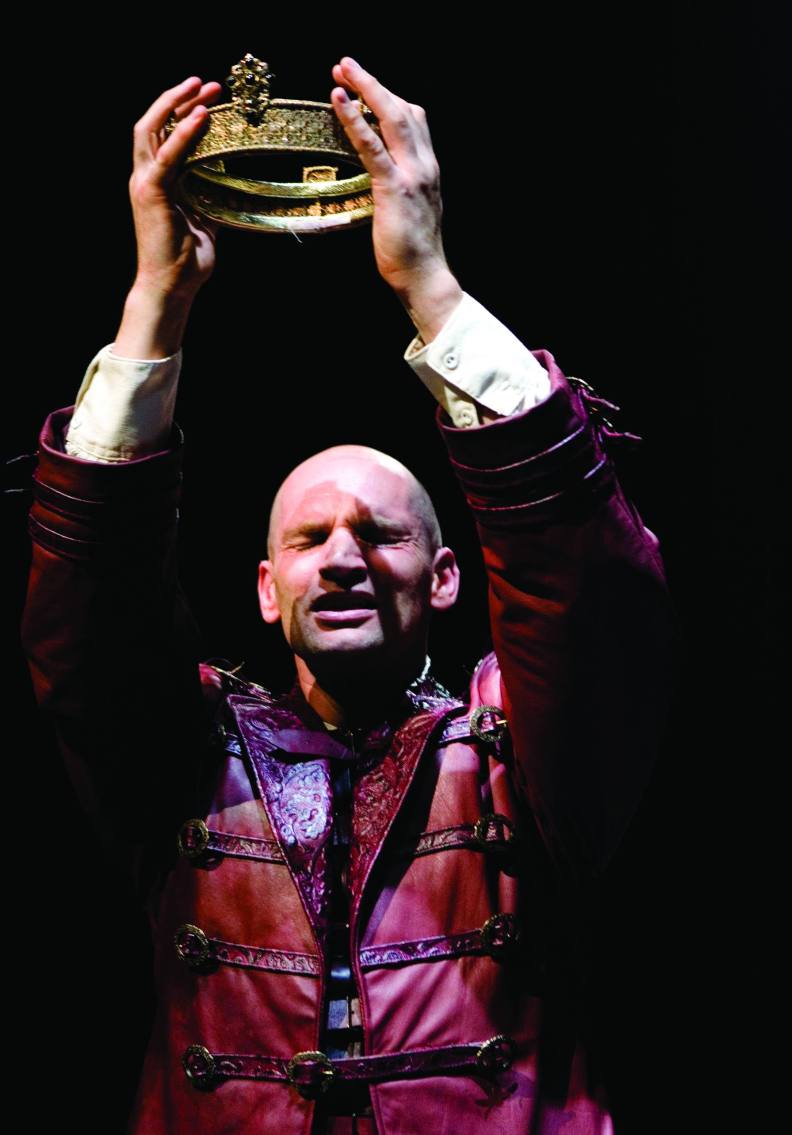Macbeth is often presented as a villain and it is difficult to defend him without taking the obvious route of blaming Lady Macbeth for his actions. In my view, it is not all about her manipulation of him. As I said in a previous blog, I think he has made his mind up to act on the witches’ predictions before he even returns to his castle and his wife.
However, when Macbeth meets the witches, he is not seeking their predictions. He is confronted with them and it is this unsought information which sets him thinking. Twice (in Act 1 Sc 3 and in Act 3 Sc 1) he seeks to discuss what was said by the witches with Banquo, the only other person who might have something useful to say on the subject. Admittedly, he never follows through on these requests to talk but they do suggest a man who might still want to make sense of his darkest thoughts and actions.
Twice he falters about killing the king – in his soliloquy ‘He’s here in double trust’ (1.7) and when he tells Lady Macbeth ‘we shall go no further in this business’. As he sets forth to murder Duncan, his references to ‘witchcraft…Hecate…Murder…the wolf…Tarquin’ reveal his deep-seated fear of evil and wrong-doing. Macbeth is a character who absolutely knows right from wrong at this stage and there is no defence for what he does. He is manipulated to some extent by Lady Macbeth, but this is no excuse.
But after murder we see a different man altogether. Yes, he continues to kill (although it’s worth noting that he gets others to commit these heinous crimes for him) and becomes a ‘tyrant’ and a ‘devil’ – but is he in his right mind? We often talk about Lady Macbeth going mad but Macbeth also loses his mind and it happens a lot more quickly than it does for Lady Macbeth. Immediately after the murder he cannot say ‘Amen’. In a society ruled by religious belief and in a time when hell was a very real option, this indicates a dire realisation for Macbeth. Already at this stage he believes he is hearing a voice which tells him ‘ “Macbeth does murder sleep.” ’ His downfall is upon him, even at this early point in the action. His statement, ‘To know my deed, t’were best not know myself’ sums up his position for the rest of the play. His regret is evident and later when his mind is ‘full of scorpions’, when he sees Banquo’s ghost, when he seeks out the witches again in a search for reassurance, we feel we are watching a desperate man.
Macbeth’s final soliloquy ‘Out, out brief candle’ is much quoted but perhaps the most significant words are ‘it is a tale / Told by an idiot’. His remorse is clear: he knows he has been fooled by life.
The characterisation of Macbeth is evidence of Shakespeare’s knowledge of the human condition. He presents us with a ‘brave’ and ‘valiant’ warrior who has one flaw – his ‘vaulting ambition’ – which leads to his downfall. It is all too easy to fall into the trap of seeing Macbeth as an evil man who does nothing but evil deeds but we need to look at the whole character who expresses regret and sacrifices his peace of mind from the moment he has committed his first murder. He is no psychopath, no out and out villain. He is the real deal when it comes to the tragic hero.

